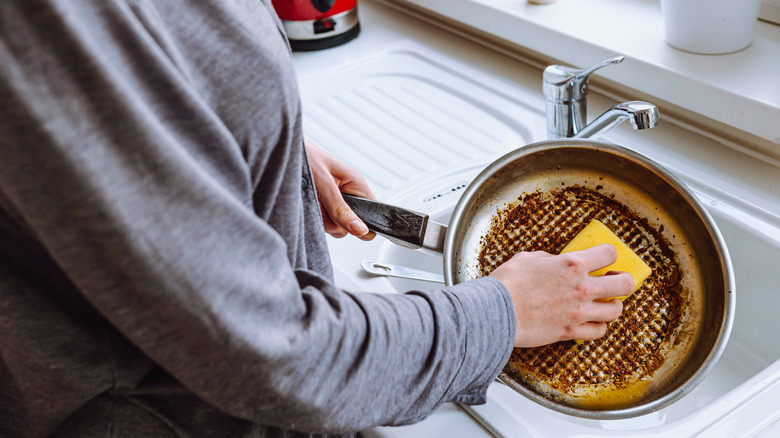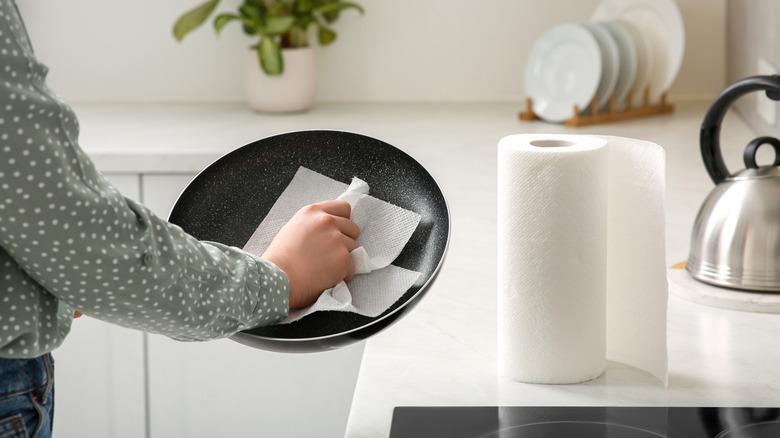How To Combat Stubborn Built-Up Residue On Non-Stick Pans
We've all been there. Maybe we left the pan cooking just a little too long, or maybe we used a bit too much cooking spray. Now, even our trusty non-stick pans have a gross layer of sticky residue that makes us say something to the effect of "non-stick, my foot." Don't worry, though; even expert chefs make cooking mistakes occasionally. What's important is to move forward and clean that residue off so you can prepare a delicious meal another time.
Many argue that the best way to get stubborn residue off of non-stick pans is with vinegar. Mix together water and vinegar in the pan, let it simmer for about five minutes, then take it off the stove, let it cool down, and gently scrub with dish soap and a sponge (just be careful not to overdo it and damage the non-stick coating). Repeat as necessary until the residue is gone. For extra cleaning power, use a pantry staple that's great for cleaning your kitchen: baking soda. Vinegar and baking soda are a great cleaning combo; just be mindful when combining them, since we all remember the baking soda volcanoes from the middle school science fair.
Vinegar and baking soda are not the only kitchen ingredients that can clean burnt pans or sticky residue. Lemon slices are another great way to make your pans shine. Simply slice a lemon, add the slices to water in the pan, simmer on the stove for up to 10 minutes, and scrub.
How to prevent residue in the first place
Naturally, the best way to keep your non-stick pan free of cooking residue is to stop it from appearing in the first place. One of the best ways to do that is to avoid cooking spray, which can build up a residue that will keep your non-stick pan from living up to its name. In the same vein, use cooking oils with a high smoke point, like avocado oil, since it's harder to burn food with them and leave nasty burnt stains.
Another good tip is to be mindful of your stove's heat. Heat wears down the nonstick coating of your pans over time, so cooking with high heat too often can easily ruin your pans. Even putting the pan's sake aside, nonstick pans can release harmful chemicals from that coating when exposed to excessive heat. If you can't cook something at medium or low heat, use a different type of pan.
You can also preserve your non-stick pan's coating by using oil before adding it to heat. The oil serves as a buffer between the food and the pan and protects the pan from heating up too quickly, which can also damage the coating. Always add the oil before the pan goes on the stove. It doesn't take long for a non-stick pan to heat up, and an empty pan can release chemicals from its coating into the air, which may be hazardous if inhaled.

